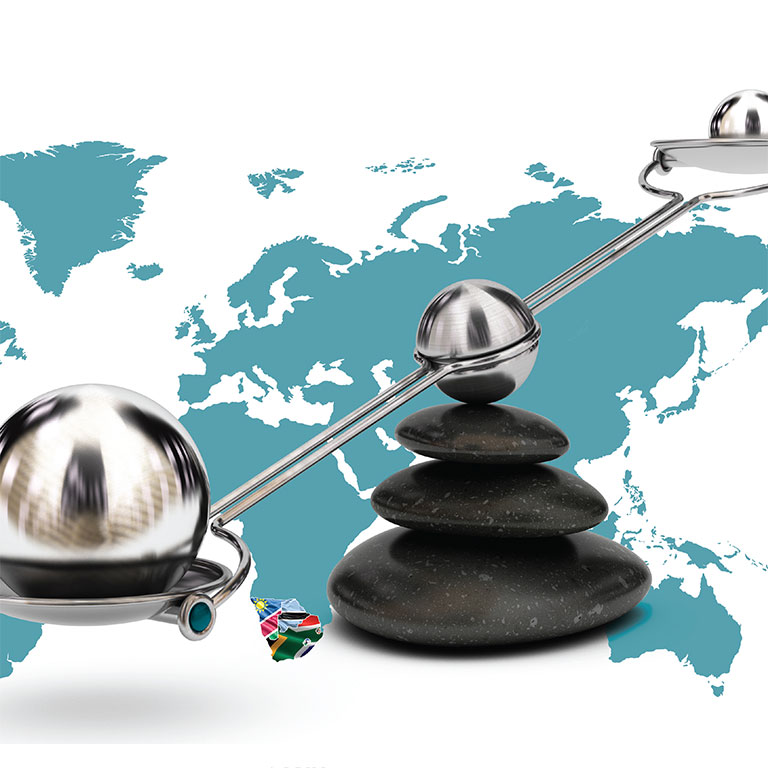PRETORIA, March 14, 2022—Overall inequality in the Southern African Customs Union (SACU) is driven largely by inequality of opportunity. The report, Inequality in Southern Africa: An Assessment of the Southern African Customs Union, says climate and economic shocks such as the COVID-19 pandemic, which generally affects poor people more severely, makes gains towards a more equitable society fragile.
Comprised of Botswana, Eswatini, Lesotho, Namibia and South Africa, SACU is the world’s most unequal region. . In 2010–15, the average Gini coefficient for SACU countries was around 59, compared to 42 for Sub-Saharan African and upper-middle-income, the report shows. There is, however, heterogeneity across countries; with a consumption per capita Gini coefficient of 67 in 2018, South Africa ranks as the most unequal country in the world, according to the latest World Bank data. The Gini coefficients of all other SACU countries except Lesotho, exceeded 50. Even Lesotho, with a Gini coefficient of 45 in 2017, was among the top 20% of unequal countries.
The report finds that the contribution of inequality of opportunity to overall inequality in SACU has increased in recent years. This is perpetuated by poorly functioning labor markets that are characterized by high unemployment especially among the youth, and where inherited circumstances continue to determine employment outcomes and earnings. Further, there are barriers to accessing productive assets such as education, skills, and land that people need to generate income and improve their wellbeing.
“Leveling the playing field at birth through expanding coverage of quality education, health, and basic services to disadvantaged populations in the SACU region is critical to reducing inequality and breaking the intergenerational cycle of poverty,” said Marie Francoise Marie-Nelly, World Bank Country Director for Botswana, Eswatini, Lesotho, Namibia, and South Africa.
. Further, when race is included in the analysis, the contribution of inequality of opportunity in South Africa more than doubles. Circumstances at birth and during childhood, such as gender, race, location, parental education, and family wealth, are strongly associated with inequality of opportunity, even before people interact with factor markets.
The report also shows that lack of jobs and access to key productive assets such as education, skills, and land, is slowing down progress towards a more equitable income distribution. In addition, inequality in wealth is high and invariably results in inequality of opportunity. As a result, intergenerational mobility remains among the lowest in the world. In a context where jobs are scarce and skilled labor is in short supply, having post-secondary or tertiary education is key to both accessing jobs, and obtaining better wages once employed.
“To accelerate inequality reduction, SACU countries can build on what they are already doing well with the same resources through improving the efficiency and effectiveness of social spending,” said Pierella Paci, World Bank Practice Manager of the Poverty and Equity Global Practice for Eastern and Southern Africa.
The report also finds that . However, despite considerable social spending, outcomes are relatively poor and highly unequal. The contribution of social spending to inequality reduction could be enhanced by improving quality, targeting, and efficiency.
The report suggests three policy measures to accelerate the reduction of inequality in SACU region, including:
- Promoting policies that foster equality of opportunity through expanding coverage and quality of education, health and basic services across sub-regions and disadvantaged populations.
- Addressing the highly skewed distribution of productive assets by strengthening access and availability of private sector jobs, facilitating entrepreneurship and skills acquisition for disadvantaged populations and improved access to land and productivity in rural areas.
- Investing in adaptive social protection systems to increase resilience to climate risks and economic vulnerability while enhancing targeting of safety net programs towards the most vulnerable populations for more efficient use of fiscal resources.
